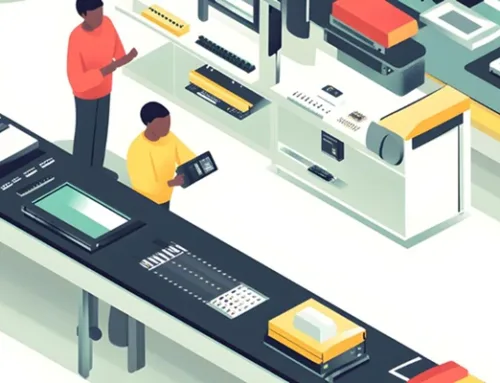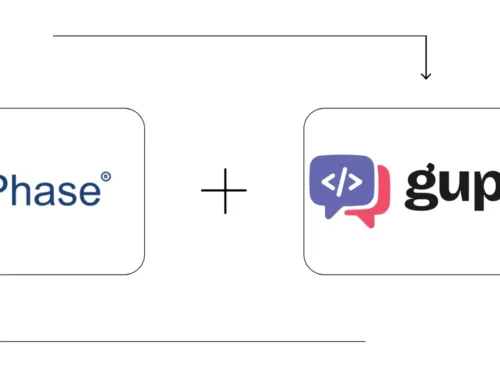The Soft Skills Audit: How to Hire for Emotional Intelligence in Technician Roles

Introduction
In the electronics repair industry, it’s easy to focus solely on what’s measurable: certifications, repair speed, and technical knowledge. A resume that lists micro-soldering experience and a background in diagnostics looks fantastic on paper.
But here’s the reality: a brilliant technician with poor people skills is a liability, not an asset.
Your technicians are the face of your brand. They are the first and last person a customer interacts with, often during a moment of high stress (a broken device). The way a technician communicates, empathizes, and problem-solves can mean the difference between a one-time transaction and a lifelong, loyal customer who brings you every single referral.
To build a truly sustainable and highly-rated business, you must conduct a Soft Skills Audit and prioritize emotional intelligence in your hiring process. The competition for the best computer repair jobs is shifting—it’s no longer just about who can fix it fastest, but who can make the customer feel best.
The Problem with Technical-Only Hiring
When you hire a technician purely for technical prowess, you risk creating three major customer roadblocks:
- The Jargon Trap: The technician uses confusing technical language, leaving the customer feeling stupid, confused, and less trusting.
- The Empathy Gap: The technician dismisses the customer’s panic or frustration, creating an antagonistic, transactional experience.
- The Lost Sale: The technician fails to communicate the value of a high-quality
cellphone partsupgrade or a warranty, costing you a high-margin upsell.
The Soft Skills Audit: The Four Crucial Traits
When looking to hire for phone technician jobs, structure your interview process around these four non-technical traits.
1. Empathy and Patience
Your customers are often stressed. They’ve lost access to their business, their memories, or their primary communication tool. An empathetic technician acknowledges this stress rather than ignoring it.
- The Goal: To validate the customer’s frustration and reassure them that their problem is important.
2. Clear Communication
The ability to translate complex technical jargon into simple, actionable language is a superpower. A great technician can explain why a part broke and what the fix involves without overwhelming the customer.
- The Goal: To educate the customer transparently, building trust and minimizing future support calls.
3. Problem-Solving (Under Pressure)
Technical competence is tested when things go right; soft skills are tested when a repair goes sideways. Can the candidate communicate a delay or a complication without panicking or blaming the customer?
- The Goal: To maintain composure, clearly outline the new plan, and re-establish a timeline for the customer.
4. Ethical Salesmanship
Salesmanship isn’t about being pushy; it’s about providing value. A technician with strong soft skills knows how to ethically upsell by highlighting the benefit to the customer—e.g., selling a premium cellphone parts upgrade because it comes with a better warranty, not just because it’s more expensive.
- The Goal: To increase the average transaction value by educating the customer on high-margin, value-added services.
Interviewing for Soft Skills: Actionable Questions
Stop asking, “What are your greatest weaknesses?” Start asking behavioral questions that force candidates to demonstrate these traits:
| Soft Skill | Behavioral Interview Question | What to Look For |
|---|---|---|
| Empathy | “Tell me about a time a customer was clearly upset or angry. How did you handle that initial interaction?” | “A customer just paid $100 for a repair. How do you convince them to spend an extra $20 on a high-quality screen protector?” |
| Communication | “Explain the difference between a hard drive and an SSD to a non-technical person using only simple analogies.” | Clear, concise language; avoiding acronyms; using analogies the average person would understand. |
| Pressure Mgmt | “You realize during a critical repair that you’ve ordered the wrong part, and the replacement won’t arrive for 48 hours. What do you tell the customer?” | Immediate, honest communication; owning the mistake; providing proactive solutions (e.g., loaner device, compensation). |
| Salesmanship | “A customer just paid $100 for a repair. How do you convince them to spend an extra $20 on a high-quality screen protector?” | Focusing on the value (protection, avoiding a future repair), not the price. |
The BytePhase Advantage: Supporting Your People-First Team
A great repair shop software doesn’t replace soft skills; it empowers them. BytePhase is designed to free up your technicians from administrative burden, allowing them to focus entirely on the customer relationship.
- Minimizing Distractions: Digital work orders, automated status updates, and a streamlined
pos systemmean your technician isn’t bogged down with paperwork or chasing down updates. They can focus 100% on the customer in front of them. - Professionalism Reinforcement: BytePhase’s clean, organized, and transparent digital platform reinforces the technician’s professional image, making the customer more receptive to their advice and upselling efforts.
- Communication Audit Trails: The platform tracks all customer communication, helping managers identify which technicians excel at customer service and which ones need further training in soft skills.
By auditing for soft skills, you’re not just hiring better employees; you’re investing in a customer-first culture that will drive long-term loyalty and profitability.






